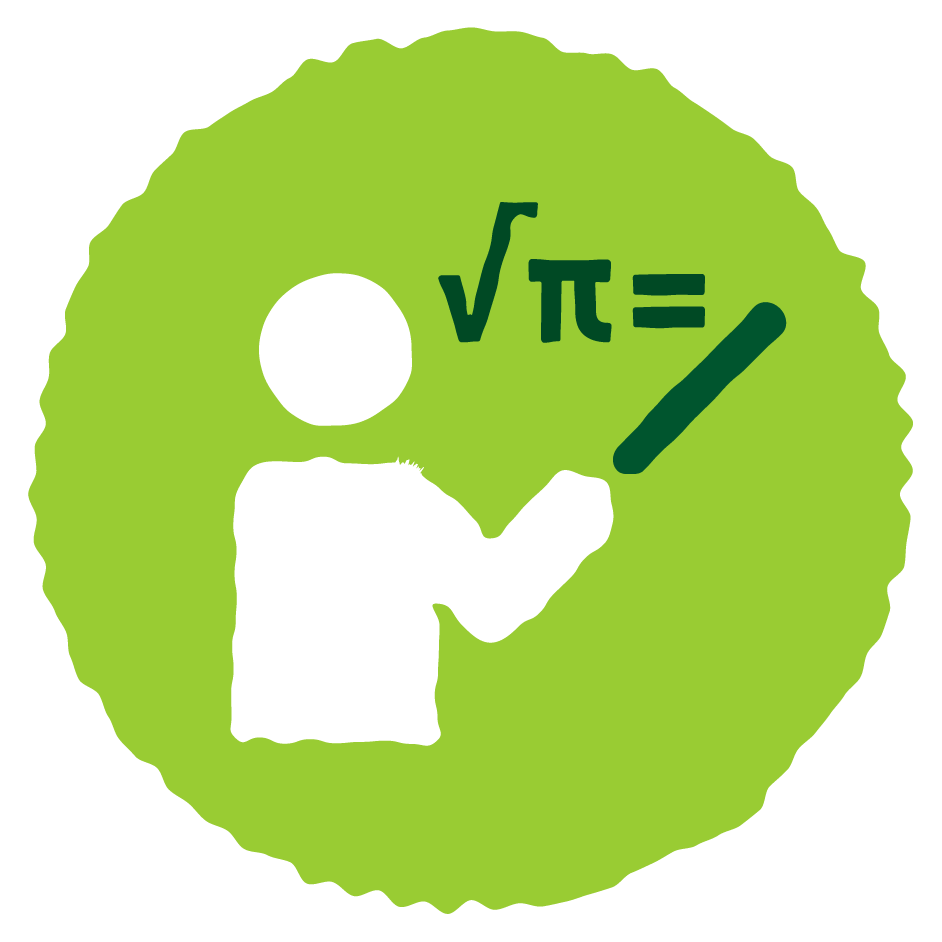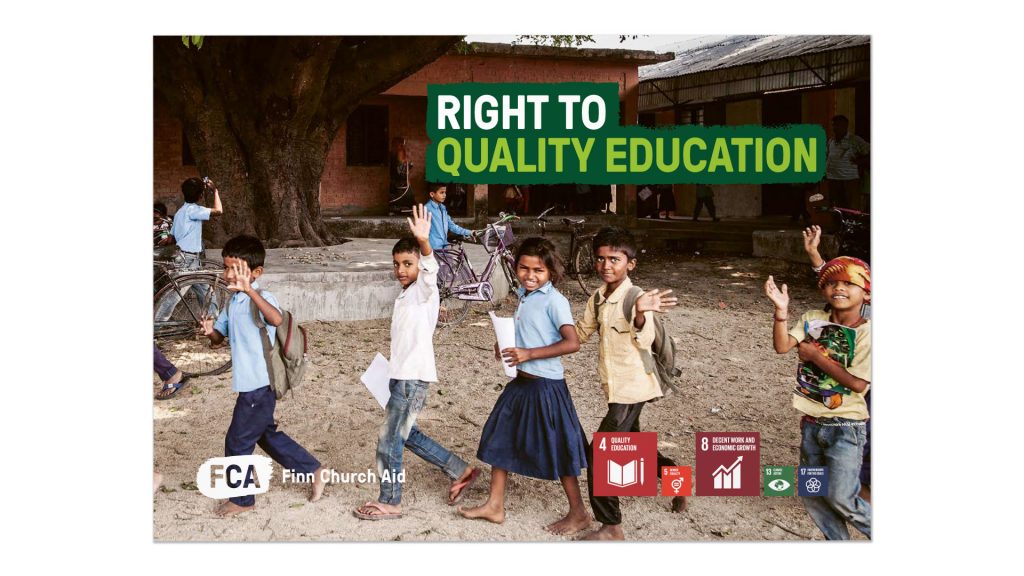Right to Education
RighttoEducation
Education is a key to stability, realising human rights and unlocking the potential of children and youth. In fragile contexts, among the world’s most vulnerable populations, schools also serve as safe spaces where learners are protected from abuse and child labour while gaining knowledge and skills for building a better future.
By working for the Right to Quality Education, we want to ensure safe, inclusive schools with quality teaching for everyone. We draw on experience from Finland’s internationally recognised education expertise in primary, secondary and vocational education and early childhood development.
Our programmes support access to education, particularly for girls, persons with disabilities and young women. Besides building school structures and creating safe, environmentally friendly learning environments, we invest in supporting and building the capacities of teachers and Ministries of Education.
 4,171
4,171
In 2020, we provided 4,171 children with access to early childhood development and education in Kalobeyei settlement and Kakuma refugee camp in Kenya.
Career counselling and teaching working life skills are an integral part of our education projects. We support the world’s most fragile states in developing career counselling and vocational education that equip youth with skills and opportunities to find sustainable livelihoods after completing school.
Innovative approaches are at the core of our education response. Innovations can be social, pedagogical, economic and technological, and the solutions improve inclusion, equity and the quality of education.
Our school structures are designed against disasters, and we tailor digital solutions to complex educational challenges, such as remote learning during the Covid-19 pandemic and remote mentorship programmes for teachers in refugee settlements supported by the FCA-founded Teachers without Borders network.

Read more
Education in Emergencies
The main focus of our humanitarian work is Education in Emergencies. We believe that education is part of the most urgent needs in a crisis, along with food, shelter and healthcare.
We base our Education in Emergencies response on a holistic approach to well-being. Education provides physical, psychosocial and cognitive protection for children and youth and can sustain and save lives.
With Education in Emergencies, we aim to ensure uninterrupted quality education in primary, secondary and vocational education (TVET) and non-formal education and early childhood development.
Our operations focus on ensuring meaningful community participation, constructing transitional learning spaces, rehabilitating permanent schools, providing educational materials and kits and training teachers.
We are committed to coordination with other actors and education authorities to ensure coherent education responses and seek long-term solutions from the earliest stages of a crisis while ensuring that programmes are adaptive to meet urgent, unexpected needs.
Technical Vocational Education Training (TVET)
We work for quality Technical and Vocational Education and Training (TVET) and support youth’s transition to working life while advocating for functional cooperation with the private sector.
Our work ensures inclusion and equity in the youth’s access to TVET in vulnerable contexts, such as refugee situations. We support in developing updated, market-driven, competency-based curricula and certified qualifications and equip TVET teachers with updated vocational pedagogical and didactical skills.
We promote on-the-job training in connection with TVET programs and develop apprenticeship training in collaboration with the private sector.
Business coaches facilitate the starting of businesses, and career guidance counsellors support career choices, help tackle challenges in learning and support job-seeking or the transition to further education.
Education Sector development
We support education sector development, particularly in fragile contexts. Collaboration with national Ministries of Education and other relevant ministries and education authorities at different levels take different forms ranging from capacity development to curricula development and supporting the formulation of inclusive, equitable, informed education policies that reduce the risk of conflicts and disasters.
We support duty-bearers, such as governments, in Education in Emergencies, TVET, developing systematic career guidance and counselling services development, and teacher education, among other things.
- We have developed Cambodia’s career guidance and counselling system in collaboration with the Cambodian Ministry of Education, Youth and Sports since 2014. Career guidance and counselling has decreased school drop-out rates and opened doors for youth employment in Cambodia. The program’s success has extended career guidance and counselling to other country programmes.
Teacher education
Teachers form the most critical resource for realizing quality education. We draw from the Finnish experience of investing in teachers’ continuous professional development and well-being.
Our training supports efficient teaching that applies learner-centred pedagogy, inclusive and active teaching methods adapted to national and local contexts, and enhanced learning outcomes.
We train teachers with the support of local professionals and the volunteers of our Teachers without Borders network.
- We provide real-time support to teachers in Kenya and Uganda through mobile mentoring. Teachers are trained in pedagogy, special needs education and curriculum development, after which they are supported in Whatsapp groups.
Materials
Download our brochure Right To Quality Education
Download our brochures on Career Guidance and Counselling and Linking Learning to Earning
Download our publication Improving Wellbeing Through Education – Integrating Community Based Psychosocial Support into Education in Emergencies
Download brochure Training for Primary Education Teachers in Crisis Contexts (pdf) and full training pack (pdf).
